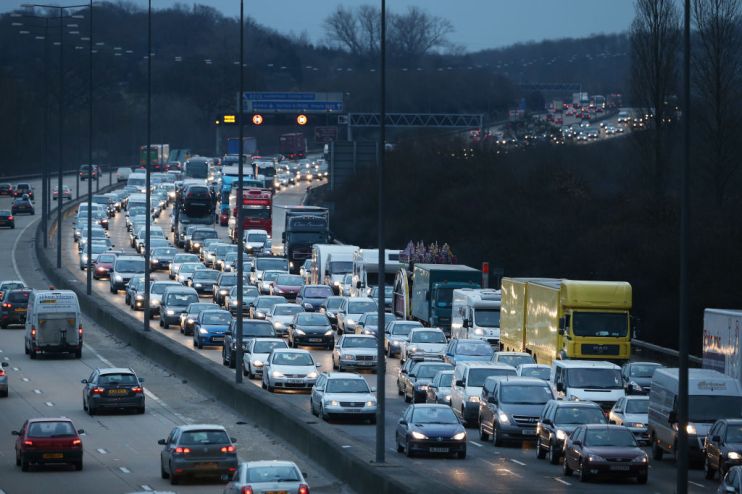London’s congestion levels soar as train drivers’ strike wreaks havoc

London’s congestion levels soared this morning as the train drivers’ strike forced millions of commuters to drive into the capital.
Data published today by Tomtom shows that congestion levels were between 42 and 62 per cent earlier this morning, up from an average of between 30 to 50 per cent.
“Today’s rail strike has yet again caused severe disruption for commuters across the capital, with only one in ten train services expected to run throughout the day,” said Tomtom’s traffic expert Andy Marchant.
“The situation has only worsened this morning as the biggest rail strike action yet has upended typical road travel patterns nationwide.”
Members of union Aslef have walked out in a long-standing dispute over salaries, in what many consider the biggest strike action in a generation.
Train drivers at 15 companies have today brought the wider transport network to its knees, as some areas have no trains all day long.
Aslef made headlines yesterday when general secretary Mick Whelan told the Telegraph the union was doing “its own thing” and that train drivers were “not led by the RMT and Mick Lynch”.
“We are months and months away from resolving anything,” Whelan told the outlet.
“There is an awful lot of either deliberate misunderstanding of the process by the government, or they’re just misleading the public.”
The Department for Transport (DfT) was approached for comment.
Aslef’s industrial action comes as 40,000 members of the union RMT working at Network Rail and 14 other operators also walk out this week after rejecting a 9 and 8 pay increase respectively.
RMT general secretary Mick Lynch has been at the centre of controversies due to his antagonistic relationship with government ministers, as he has often accused the DfT of blocking negotiations between unions and train operators. The claims have always been denied by ministers.
Lynch yesterday said government talks will resume on Monday.